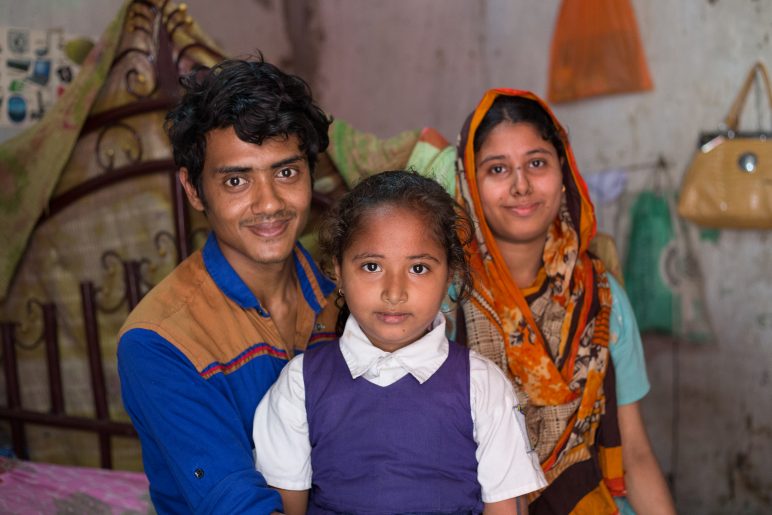[“SHARE” JAN – MAR 2019 ] JOIN HANDS JOIN HEARTS
Education is a very important part of eradicating poverty. Yet, many children living in low-income countries do not have the opportunity to receive proper education. Their parents are usually occupied by work to earn a living to put food on the table, thus they seldom think about the future of their children, who they thought would likely share similar fate like them. Because in their eyes, earning income to support their families is more important than getting an educational access for their children.
We understand that if parents do not see the importance of education, they will not send their children to schools. Therefore, CEDAR has worked with World Concern Bangladesh and churches in the country to start the “Community Engagement Programme for Sustainable Education” project in local communities to encourage parents to get involved in children’s education. Rakhi’s parents are one of them.
Rakhi and her parents live in a 100-square-foot room in a slum in Bangladesh. Her father sells train tickets at night with a monthly salary of only 3,000 Taka (about HK$275). Such amount of income can barely support the living of their family, not to mention supporting Rakhi to school.
Under this project, adults from local communities have been invited to participate in school management as members of school committees. They held regular parents’ meetings to improve their understanding of education. Thank you Lord! Rakhi’s mother has been joining the parents’ meetings to learn about the importance of education and realise Rakhi studying hard in the primary school we supported.
Our project experience tells us that community support is an indispensable factor in bringing children back to school. The above project has been running for 6 years, and currently there are about 1,029 children and 421 kids attending primary schools and pre-schools respectively. Last year, 64 students sat for the primary school national examination in the country. Nearly half of the students got Grade A. This is an astonishing result!
Rakhi’s story illustrates that when parents’ are able to look further than their current predicament and education becomes a common concern of the local communities, children can have a brighter future.
CEDAR also has collaborated with our partners to build and renovate 10 primary schools and 20 pre-schools, so that children in the slum communities can have the opportunity and better environment to study in.
Let’s continue to pray for the slum communities in Bangladesh!





